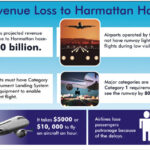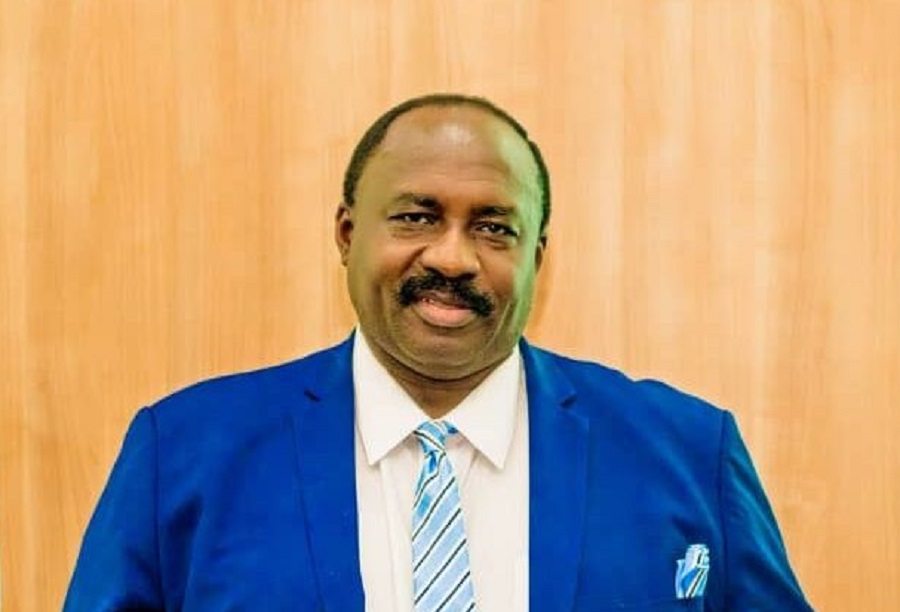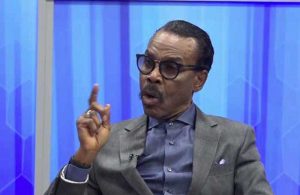
The CEO of Financial Derivatives Company, Bismarck Rewane, has said the federal government spends outrageous amounts of money to run Nigeria’s airports which processes less than 15 million passengers per annum and advocated concession of the airports to the private sector under the PPP arrangement.
This is just as the Chairman and CEO of Air Peace Limited, Dr. Allen Onyema, said that Nigerian airlines pay high insurance premium on aircraft and high prices on aircraft leasing because of country risk, as Nigeria is designated a high-risk country, a designation he described as stigmatization.
Meanwhile, Rewane who spoke at the annual conference of the League of Airports and Aviation Correspondents yesterday in Lagos, made comparisons on the cost of operating airports in different parts of the world and said that the money spent on the operation of the airports in Nigeria is not justifiable, considering the passenger throughput recorded by these airports.
He expressed concerns that Nigeria continues to spend billions on airports operations but the air traffic continues to decline and this is not in line with the airport operations expenditures.
According to him, the Murtala Muhammed International Airport (MMIA), Lagos (Nigeria) processes 6.5 million passengers annually and spends 1.75bn dollars to run the airport; Los Angeles International Airport (LAX, USA) processes 76.5 million passengers and spends 3.5 billion dollars; Heathrow Airport, London (UK) processes 83.9 million passengers and spends 15.6 billion dollars.
Rewane noted that despite the high cost of running the airports in Nigeria, the country still has obsolete and inadequate infrastructure at the airports, disclosing that Nigeria’s aviation sector lost $3.5 billion in revenue between 2020 and 2022 due to poor airport infrastructure.
The financial analyst also said the domestic air travel market is shrinking due to lack of capacity, noting that out of 23 active domestic airlines in Nigeria, only five airlines control 75 percent air traffic locally and added that domestic passenger traffic declined for the 2nd straight year to 11.5million in 2024, and air transport sector contracted by 0.81 percent in first quarter of 2025, the 6th consecutive quarterly decline.
According to him, Nigeria has 32 airports, only 20 were considered viable in 2024, and 92-96 percent of traffic flows through just four airports.
Rewane who spoke on ‘Aviation Financing in Nigeria: Risks, Opportunities and Prospects,’ said the Nigerian aviation sector is in need of consolidation and a need for a competitive hub system, preferably in Lagos, then Abuja.
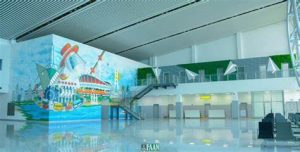
“We need very strong and effective regulation for safety; concessions and PPPs should be prioritized for airport upgrades to aid national fiscal sustainability and avoid inefficient operations.
“There should be investment in local maintenance, repair and overhaul hubs. Government should focus on policy and regulation, not running airlines or building airports directly and policy consistency is crucial for rebuilding trust with global investors and attract global aviation capital,” he recommended.
However, speaking during the panel session at the LAAC conference, Dr. Onyema said the stigmatization of Nigeria as unsafe country made insurers to charge high premium on aircraft insurance and also because of the stigmatization, lessors until recently refused to offer aircraft on dry lease (long term contract) to Nigerian carriers who had to pay literally through the nose for wet leasing of aircraft.
The reason for the blacklisting of Nigerian airlines was because some airlines reneged on leasing agreements in the past.
Onyema disclosed that recently Air Peace lost $2 million to a lessor because the airline did not want further damage to the image of Nigeria, it allowed the lessor to take away the aircraft, even when it still owed Air Peace $2 million.
“A foreign company defrauded us of $2 million. Even when I knew they were going to do that, they said they wanted to buy aircraft parts, they knew why they needed $2 million. If I had stopped them from taking the money, Nigeria would have been further blacklisted.
“What you would be hearing is, ‘Oh, a Nigerian airline is unsafe. We told them we wanted to go and do a check on the aircraft leased to them, and they wanted us to continue flying the aircraft the way it was.’ That’s what you would hear, and they would further stigmatise your country.
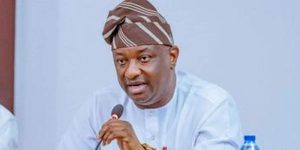
“For the sake of everyone in the aviation industry in this country, I decided not to stop this transaction. I knew they were going to take the money and run away with it. The contract stated that if they didn’t deliver the aircraft parts, they must return the aircraft to the leasing company, but that didn’t happen.
So, based on that, the company kept the aircraft. I was bothered by it. Somebody told me about it, but I didn’t listen to them, and they left. They never came back. They stole our $2 million.
“The Nigerian government got in touch with them. They said it was a private business matter and they would see what they could do, and they ran away with that $2 million.
“When my country was stigmatized, my country was blacklisted unofficially from accessing that because of not-so-good instances in the past, where Nigerian airlines did not pay the rentals, and when lessors came to repossess, they went to court.
“I’m not going to go into that because it’s not totally the fault of those airlines either. You need to understand why they went to court. So, you have to be careful to protect your country. You have to protect your flag.
“That was a sacrifice that we made for the good of other airlines in this country. If we had seized that money, we wouldn’t have been able to access dry-lease opportunities, because it would have further compounded the problems of the aviation industry,” he said.
Onyema also spoke about the stringent measures introduced by banks when offering credit facility to businesses and said that it is due to the fact that people lack integrity when they borrow money and do not pay back.
He said: “Over here, funding is very expensive which is 35% interest rate. Even when you’re going at 35%, it’s not even available to everybody. There are a lot of nuances, and these things are morally inefficient. So, you see Nigerian airlines struggling.
“You have to amass a lot of wealth to go into it, and when you go into it, you need to sustain it. You need banks; you need financial institutions. But the conditions being imposed are very far from being helpful.
“However, the problem in this part of the world is lack of integrity. Why are banks asking us to bring your great-grandmother, bring all your land, and bring all your houses before they can lend money to you? It’s because in the past, some people have taken money from these banks.
“The only thing they did was help the banks to collapse because they didn’t pay it back. We come from a part of the world where people don’t regard money from banks properly. They think it is nobody’s money and they just got it from a bank.
“When you take money, and direct it to other purposes, other than what you borrowed the money for, that’s the fundamental problem. So, we have to do what I call self-introspection.
“We look at ourselves first and tell ourselves the truth. We need to start showing some level of financial integrity to be able to get it right.”
The Air Peace CEO commended the federal government for facilitating Nigeria’s readmission as member of the Cape Town Convention and now it is ripe to access dry lease of aircraft due to the adroit negotiations of the Minister of Aviation and Aerospace Development, Festus Keyamo.
“However, I must say this: the federal government has done something very good for this country in the aviation sector. The dry-leasing they’ve been able to afford the airlines is going to be a game-changer for all the airlines in this country, and I must applaud the president.
“So, when you talk about financing, you have to also talk about indirect support. This country was unofficially blacklisted but for the first time in 12 years, in the next two weeks this country will witness the first dry-lease aircraft leasing.”




